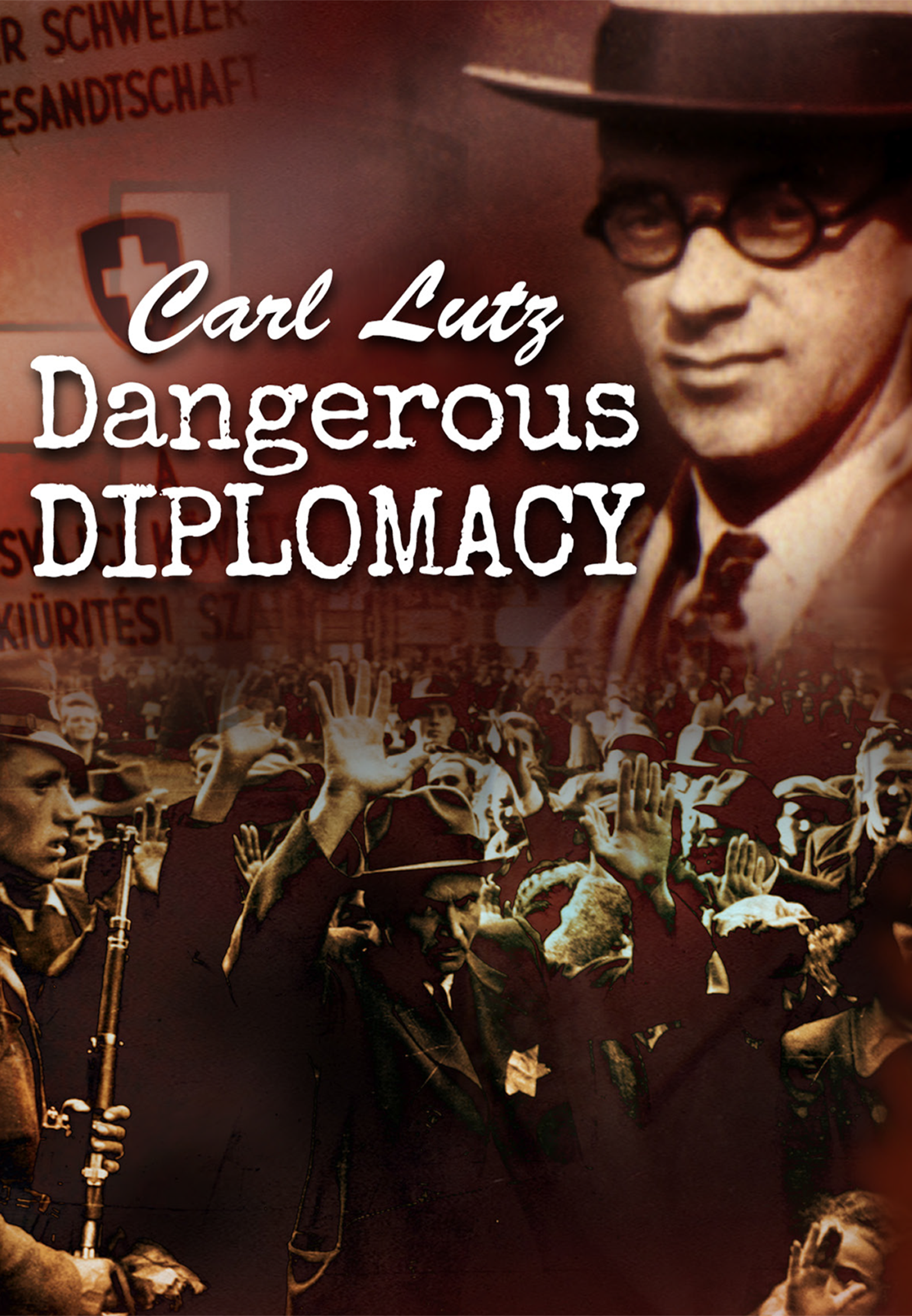![]() NEW Streaming Service Now Available Click Here
NEW Streaming Service Now Available Click Here
Carl Lutz - Dangerous Diplomacy
- Reviews
- More Description
Write a review | Read all reviews
Featured positive reviews:
I can't believe the story of Carl Lutz is not better known! Watching this documentary really give me courage to also stand up for what is right and shows how normal people can use what they have of skills and/or influence to make a huge impact.
Great resources, touching interviews, engaging reenactments--a must see!
March 1944. Germany invaded Hungary, pressing the Hungarian government to finally participate in the “final solution” by deporting the country's Jews – who had been relatively spared until then – to Auschwitz. But in Budapest, a network was put in place over the course of several months to save as many of them as possible. Behind all this was a Swiss man – Vice-Consul Carl Lutz – who led “the largest rescue operation during the Second World War,” according to historian Xavier Cornut, public affairs advisor in Geneva and a board member of the Carl Lutz Foundation.
In 1942, Lutz arrived in Budapest with his wife Gertrud on the heels of a six-year assignment in Jaffa. “Unforgettable years,” he called them, immortalised in snapshots he had taken as a talented amateur photographer. In Palestine, which was under British mandate at the time, he defended German citizens in the region.
Born into a Methodist family in an Appenzell village in 1895, Lutz was “a typical Swiss man, introverted, serious, attached to religious values, but also, paradoxically, an adventurer with a strong sense of initiative. This combination of Christian values and entrepreneurial spirit accounts for the courage and shrewdness it took to set up such a large-scale protection system in the middle of a dangerous country like Hungary,” says Cornut.
The Invention of The Protective Letter
As a Swiss diplomat, Lutz also represented the interests of countries that had severed diplomatic relations with Hungary, including the United States and Great Britain. Unwilling to turn away the hundreds of Jews who thronged the entrance to the Swiss legation every day, he came up with the idea of Schutzbriefe – protective letters – using 7,800 emigration certificates to Palestine that he acquired from Great Britain. The protective letters, still numbered from 1 to 7,800, were issued in an attempt to prevent deportation.
Another master stroke: he managed to extend diplomatic protection to 76 buildings in Budapest that housed, fed and helped Jews. The Jewish Agency for Palestine, which became the “The Swiss Legation's Emigration Department”, was located at 29 Vadasz Utca, in the “Glass House” that now holds the Carl Lutz Foundation. “It was an unorthodox way of applying the right enshrined in the Vienna Convention,” says Cornut. Lutz’s private life was profoundly affected when he met Magda Csányi, who asked him to protect her and her daughter, Agnes. He hired her to work in his home and went on to marry her in 1949.
The Glass House
The diplomat obviously did not work alone. The Glass House was the headquarters of the Zionist Youth, which oversaw “the huge logistical task” of fabricating immigration and protection papers, according to Anita Halasz, former representative of the Carl Lutz Foundation in Geneva. They were provided support by the International Committee of the Red Cross, other Swiss and foreign diplomats including the Swede Raoul Wallenberg, to whom Lutz explained his method, along with important Jewish figures like Miklos Krausz.
The Swiss authorities cautioned him to be prudent because his activities did not fall under the remit of representing foreign interests in the strictest sense, although they were of a humanitarian character. The Nazi authorities, including Lieutenant Colonel Adolf Eichmann, with whom Lutz negotiated several times, were also aware of his “troublemaking”. The German proconsul in Budapest even recommended to Berlin that Lutz be eliminated, although his request was never answered, possibly because of Lutz's support for Berlin during his posting in Palestine.
Until the autumn of 1944 when the fascist Arrow Cross Party came to power, Lutz, with the unfailing support of his wife Gertrud, pulled out all the stops, going so far as to hide Jews in his black Packard and intervene in the forced marches of Jews toward the Austrian border. In the end, over half a million Hungarian Jews died, while 130,000 survived. According to estimates, Swiss activities, of which Carl Lutz was in charge, are thought to have helped to save 62,000 of them.
“Righteous Among the Nations”
Gertrud Lutz Fankhauser, whom Lutz divorced after the war, continued to engage in humanitarian work throughout her life, mainly with UNICEF. In 1978, she was awarded the title Righteous Among the Nations by Yad Vashem, the Holocaust memorial, on behalf of the State of Israel. She died in 1995. Agnes Hirschi, Magda's daughter whom Lutz adopted, continues to travel the world – she was in Buenos Aires recently – to pay tribute to her father.



